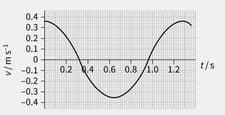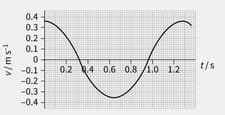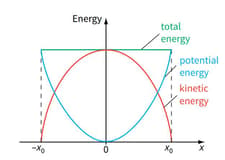David Sang and Graham Jones Solutions for Chapter: Oscillations, Exercise 11: Questions
David Sang Physics Solutions for Exercise - David Sang and Graham Jones Solutions for Chapter: Oscillations, Exercise 11: Questions
Attempt the practice questions on Chapter 18: Oscillations, Exercise 11: Questions with hints and solutions to strengthen your understanding. Physics for Cambridge International AS & A Level Coursebook 3rd Edition Digital Access solutions are prepared by Experienced Embibe Experts.
Questions from David Sang and Graham Jones Solutions for Chapter: Oscillations, Exercise 11: Questions with Hints & Solutions
To start a pendulum swinging, you pull it slightly to one side.
What kind of energy does this transfer to the mass?
To start a pendulum swinging, you pull it slightly to one side. Describe the energy changes that occur when the mass is released.
Figure shows how the different forms of energy change with displacement during s.h.m. Copy the graph, and show how the graph would differ if the oscillating mass were given only half the initial input of energy.
Figure shows how the velocity of a mass was found to vary with time during an investigation of the s.h.m. of a pendulum. Use the graph to estimate the following for the mass: Its maximum velocity

Figure shows how the velocity of a mass was found to vary with time during an investigation of the s.h.m. of a pendulum. Use the graph to estimate the following for the mass: Its maximum kinetic energy.

Figure shows how the velocity of a mass was found to vary with time during an investigation of the s.h.m. of a pendulum. Use the graph to estimate the following for the mass: Its maximum potential energy

Figure shows how the velocity of a mass was found to vary with time during an investigation of the s.h.m. of a pendulum. Use the graph to estimate the following for the mass: Its maximum acceleration

Figure shows how the velocity of a mass was found to vary with time during an investigation of the s.h.m. of a pendulum. Use the graph to estimate the following for the mass: The maximum restoring force that acted on it.


